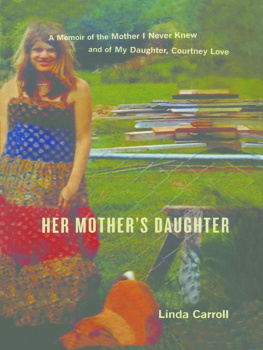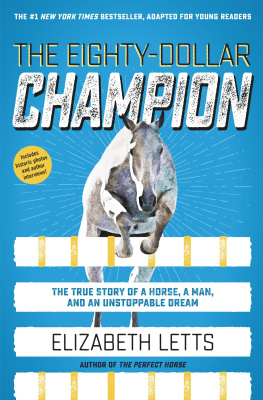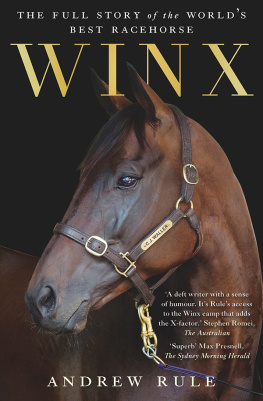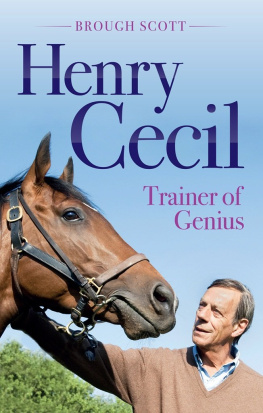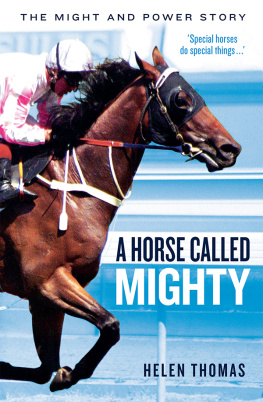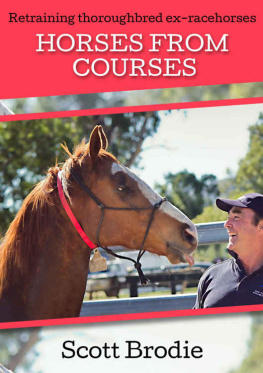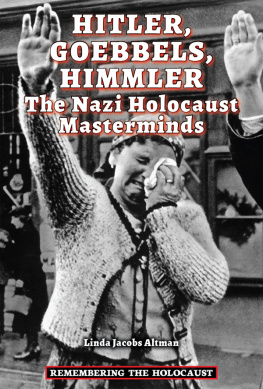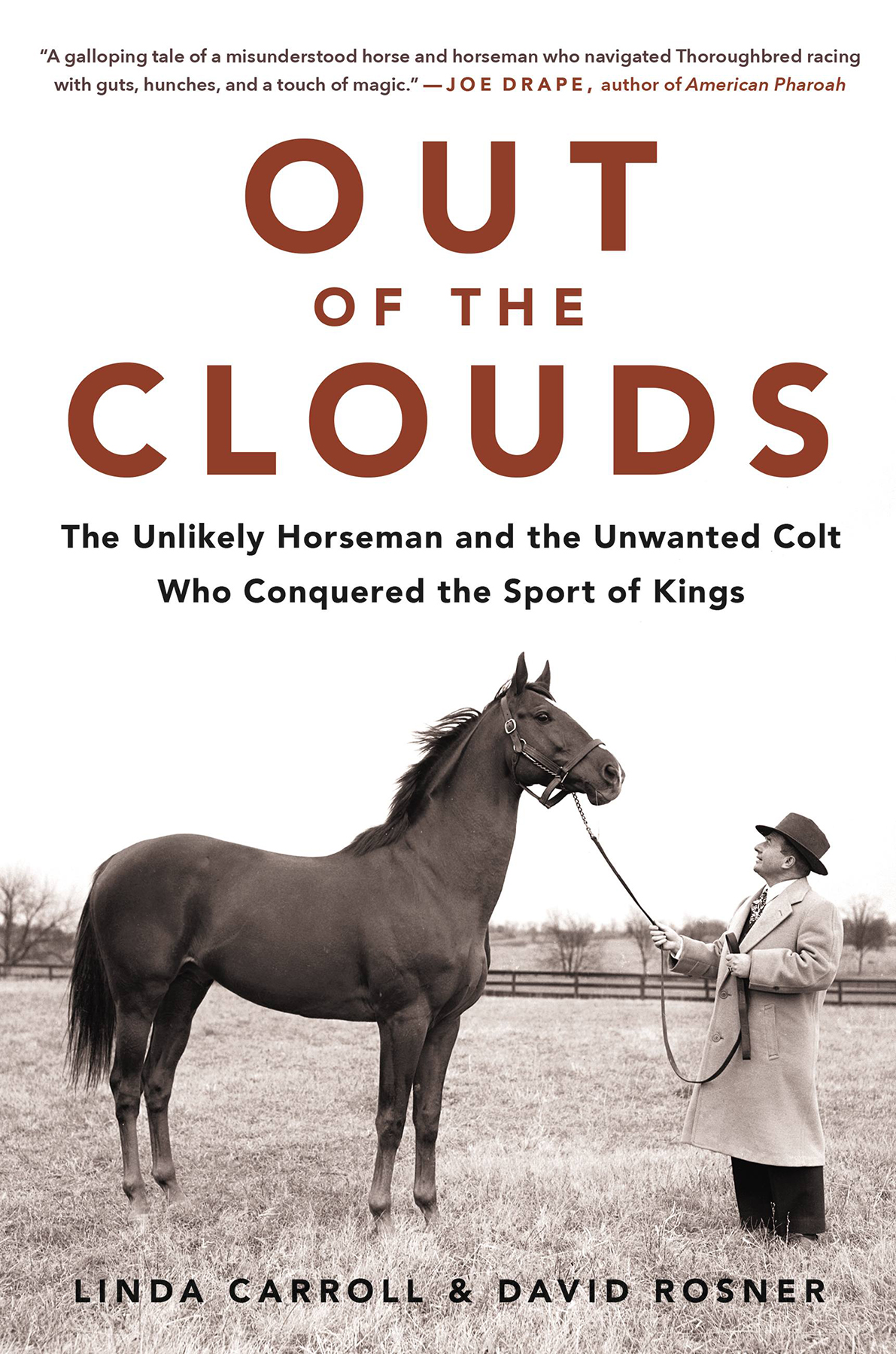
Cover design by Amanda Kain
Cover copyright 2018 by Hachette Book Group, Inc.
Hachette Book Group supports the right to free expression and the value of copyright. The purpose of copyright is to encourage writers and artists to produce the creative works that enrich our culture.
The scanning, uploading, and distribution of this book without permission is a theft of the authors intellectual property. If you would like permission to use material from the book (other than for review purposes), please contact permissions@hbgusa.com. Thank you for your support of the authors rights.
Hachette Books
Hachette Book Group
1290 Avenue of the Americas, New York, NY 10104
hachettebooks.com
twitter.com/hachettebooks
First Edition: May 2018
Photo credits can be found .
Hachette Books is a division of Hachette Book Group, Inc. The Hachette Books name and logo are trademarks of Hachette Book Group, Inc.
The publisher is not responsible for websites (or their content) that are not owned by the publisher.
The Hachette Speakers Bureau provides a wide range of authors for speaking events. To find out more, go to www.hachettespeakersbureau.com or call (866) 376-6591.
Library of Congress Cataloging-in-Publication Data
Names: Carroll, Linda, 1956 author.
Title: Out of the clouds: the unlikely horseman and the unwanted colt who conquered the sport of kings / Linda Carroll and David Rosner.
Description: First edition. | New York : Hachette Books, 2018. | Includes bibliographical references and index.
Identifiers: LCCN 2017049734| ISBN 9780316432238 (hardcover) |
ISBN 9781549168468 (audio download) | ISBN 9780316432214 (ebook)
Subjects: LCSH: Jacobs, Hirsch. | Racehorse trainersUnited StatesBiography. | Horsemen and horsewomenUnited StatesBiography. | Race horsesUnited States.
Classification: LCC SF336.J33 C37 2018 | DDC 636.1/2092 [B]dc23
LC record available at https://lccn.loc.gov/2017049734
ISBNs: 978-0-316-43223-8 (hardcover), 978-0-316-43221-4 (ebook)
E3-20190531-PDJ-PC-DPU
For all the underdogs, longshots, and outsiders striving to realize their American Dream
O n a beautiful New York spring afternoon in 1943, Hirsch Jacobs stood in the tree-shaded paddock at Belmont Park, elbows leaning on the wrought-iron fence that rimmed the walking ring, as he watched the horses being saddled for the first race. A regular fixture in the bucolic saddling area just behind the stately brick grandstand of Americas grandest racetrack, he blended right in with the spectators who trickled through the nearby turnstiles seeking a diversion, if only for a few fleeting hours, from the unremitting stress of a world at war.
A short, stout man in his late thirties with a round, ruddy face and bright red hair, Jacobs sported a conservative three-piece suit and tie that made him look more like a button-down businessman than the hardened horseman he was. While the racegoers around him casually sized up the field in hopes of picking a winner for their $2 bets, he was hard at work scrutinizing the dozen entrants with his discerning eye in search of a bargain to add to his successful stable of modest Thoroughbreds that had all been bought on the cheap.
Despite operating on a shoestring budget in a rich mans pastime fittingly dubbed The Sport of Kings, Hirsch Jacobs had managed to establish himself over the past decade as Americas winningest trainer. He did it by scooping up the discards of prominent high-society racing stables at bargain-basement prices and somehow transforming them into winners. He would buy those cheap and often-unsound nags out of claiming racesthe lowest-level competitions in which any horse entered can be purchased, or claimed, shortly before post time at a preset priceand promptly diagnose their problems and work his magic with a combination of home remedies and equine psychoanalysis. The strategy had worked so well that hed saddled more winners annually than any other trainer for a record-smashing nine of the previous ten years.
For all his achievements, though, the old-money racing aristocracy, galled at being beaten by the very horses they had recently discarded as worthless, haughtily dismissed Jacobs as nothing more than a claiming trainer. To them, he was the ultimate outsider: a commoner in The Sport of Kings, a Jewish immigrant tailors son who grew up dirt poor on the streets of Brooklyn and never gave horses a second thought until his late teens, a greenhorn who owed everything he knew about training them to his youthful passion of raising and racing pigeons. At a loss to rationalize the incomprehensible success of a New York City street kid in a pastoral pastime whose ingrained traditions had been passed down from English royalty and nobility to Kentucky Bluegrass gentry, they were sure Jacobs must have been doing something underhanded and even went so far as to hire private investigators to surveil his barn round the clock for proof of illicit practices or voodoo potions. When they could find no hints of any wrongdoing, they continued to snipe about how he only ever won the most ordinary races by running his cheap claimers like a fleet of taxicabs and wouldnt know what to do with the Thoroughbred equivalent of a Rolls-Roycea high-class horse with the talent to enter the big-purse stakes from the Kentucky Derby on downif he ever got his hands on one.
As much as the blue-blooded swells resented him, Jacobs reigned as the favorite of all the blue-collar horseplayers who could trust him with their hard-earned $2 bets because they knew that any horse he sent to the post would be ready to race. In a larger sense, he was a working-class hero to all the downtrodden common folk who could identify with his Horatio Algeresque rise from impoverished outcast to the realization of the American Dream: the city boy who never even rode horses now climbing the ladder, one cheap claimer at a time, past all the hardboots from Bluegrass pastures and cowboys from Western plains. Thus did he bond with the masses of working-class fans who made horse racing Americas most popular spectator sport and who viewed the racetrack as a source of affordable entertainment where a lucky bet could make their dreams come true. They rooted for longshots, for underdogs, for castoffs like the common claimers that populated the majority of all races run each day and that popularized Hirsch Jacobs as The Pigeon Man and a Miracle Man in headlines nationwide.
On this mild and sunny Saturday of a Memorial Day weekend made more meaningful for a nation in the throes of World War II, Jacobs had come to the Belmont Park paddock on the lookout for his next project horse. Which is why he was joined there by his partner in their public stable of cheap claimers: Isidor Bieber, a Runyonesque high roller who, as a first-generation Jewish immigrant with shared Eastern European roots, was as much an interloper as Jacobs. Their unlikely partnershipBieber providing the bulk of the start-up bankroll, Jacobs all the horse sense and training savvyhad for two decades been shaking up the racing establishment.
Standing against the paddock fence, this pair of New York city slickers presented the most incongruous Odd Couple: Bieber, a flamboyant dandy notorious as a high-stakes gambler and Broadway ticket hustler who looked in his clashing stripes and checks as if hed stepped right out of a Damon Runyon short story (and who had in fact served as both source and model for some of his famous writer friends colorful characters), towering over the much-younger Jacobs, a devoted family man who acted as modestly as he dressed and never even played the ponies. While the bombastic Bieber would hold forth quoting everyone from Shakespeare to Voltaire and espousing provocative opinions that he often backed up with his fists, the soft-spoken and mild-mannered Jacobs quietly went about his business with guarded privacy, parsing his words and pausing only to greet fellow racetrackers with an easy smile and amiable Hiya in his high, nasal voice. All they seemed to have in common, besides their shared outsider status, were the cheap claimers they invested in together and the other horses they managed for a handful of small-scale owners like their mutual friend Damon Runyon.



